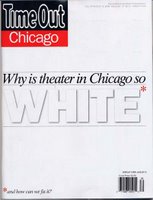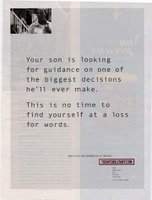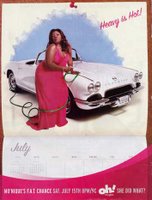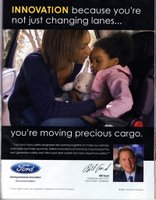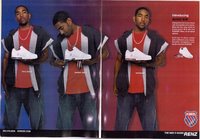
Here’s a follow-up to a column from The Chicago Tribune that appeared in Essay 824…
-------------------------------------------
Values separate blacks, not cash, readers opine
By Dawn Turner Trice
Recently, I asked you to send your thoughts on whether the black middle class is doing enough to help poorer blacks. I heard from so many of you. This is the first installment--with minor editing--of your responses. I think it is a combination of the middle and upper classes not doing enough and the push to “keep it real.” We are inundated with negative images and stereotypes of black life.
Growing up, I was so happy to watch “The Cosby Show.” I came from that type of upper middle-class upbringing that most of America, blacks included, felt was a myth. Even today, whites find it amazing that I did not grow up in the ‘hood; that I had grandparents who went to college; and I have highly educated professional parents. During an exercise in a law school class, a white woman and I argued after I described my upbringing and what I wanted for my children. She could not believe that a black person could go to mostly white private schools and want an Ivy League education for her children. Middle and upper class blacks can adopt schools, mentor and put money back in the community all day long, but until we as a people want something better and see something better on a mass scale, the cycle of intractable poverty will not end. --Pam M.
I live in a black community where people who are involved in the mainstream economy live next door to people who are involved in the underground economy. The two groups see each other every day. One group passes the other on its way to work, school, church and family outings. The other group is usually running from something (police, gangs, personal responsibility etc.). Instead of defining our community by economic status only, we need to consider the values. There are two black communities, and each community is shaped by its values more than by income. I think that is what Bill Cosby was trying to say. --Alicia B.
I read with fascination your article. Being from New York City I see a lot of similarities. You wrote, “Is the black middle class not doing enough from close up and from afar?” I think that the black middle class is not doing enough to teach the youth of our community that there is more to life than ESPN, basketball and music. I am the youngest of 10 and I was blessed to have an extended family and support from my grandparents on both my mother’s and father’s side. I hear a lot of talk about the differences in our black communities, but little about our similarities and how we can uplift our youth. --Michael R.
I think the data you cited confirm what many of us in the black community have long been aware of but perhaps have forgotten over the past decade or so. That is, the degree of social differentiation in the black community is not as large or significant as it may be, for example, for whites or Asians. I have cousins who, like me, are graduates of Ivy League colleges and universities. I also have cousins--no further removed in terms of kinship--who have been in prison, struggled with drugs and have been involved in gangs. They are still members of my family, but I wouldn’t leave them alone in my house. The reasons for these disparate outcomes are complex. But one factor may be related to duration. The white middle-class families I know have been in the middle class for several generations and remained so even during the Great Depression. The percentage of black families who could make a similar claim is much smaller. --Darryl C.
From my humble perspective, I think the African-American community is satisfied with its current state of affairs. The census data suggest that the public education system is failing the urban youth of America, especially African-American children and more specifically African-American boys. Yet, what is the community doing to help these young men? I’m not talking about the teachers and the standout volunteers. I’m talking about the collective community. We talk a good game, but ultimately we are doing nothing. If we are doing nothing to change the situation, we must be satisfied with the situation. I ask you this: Why should the black middle class feel guilty about moving onward and upward? --Brandon S.









